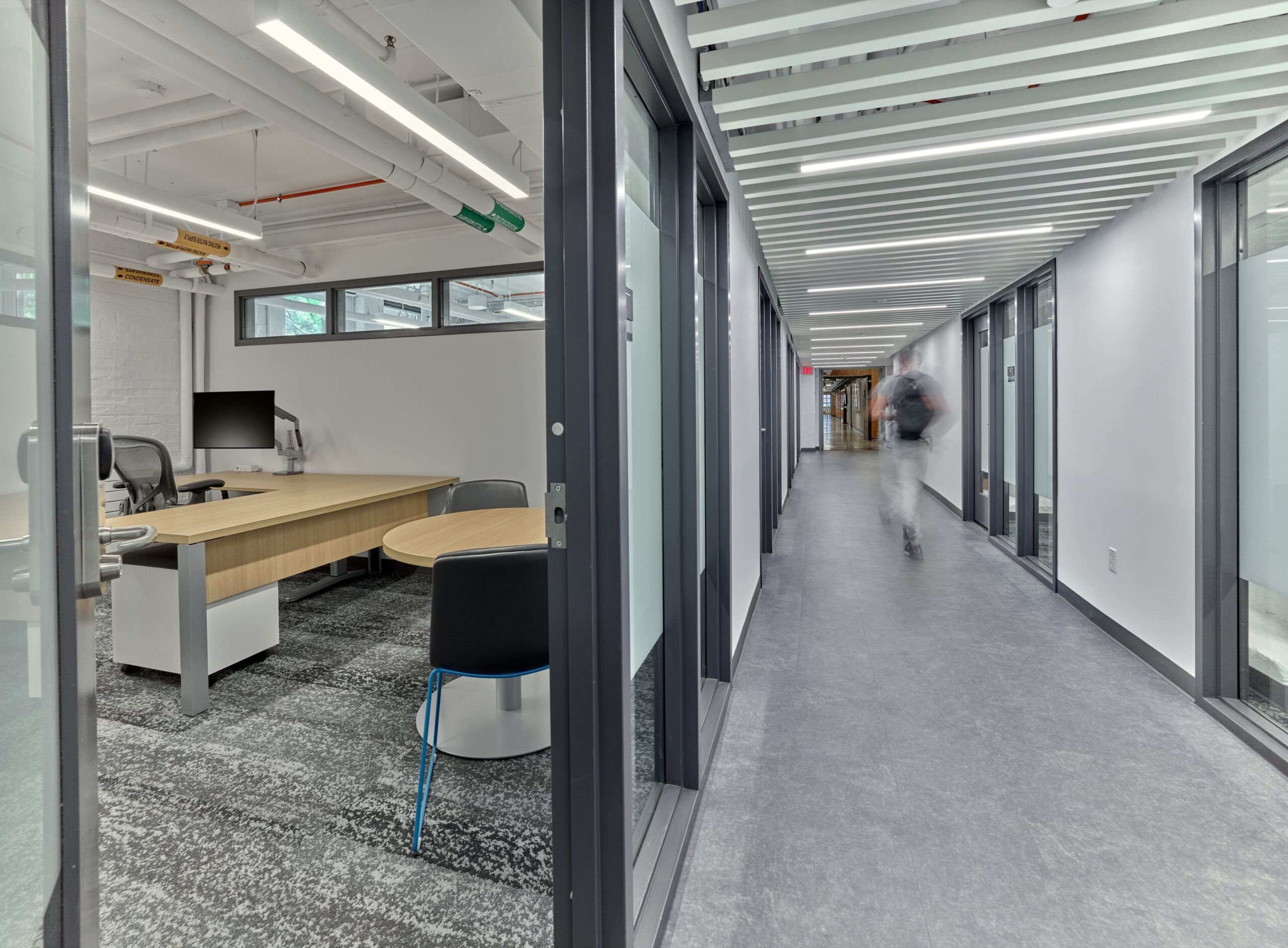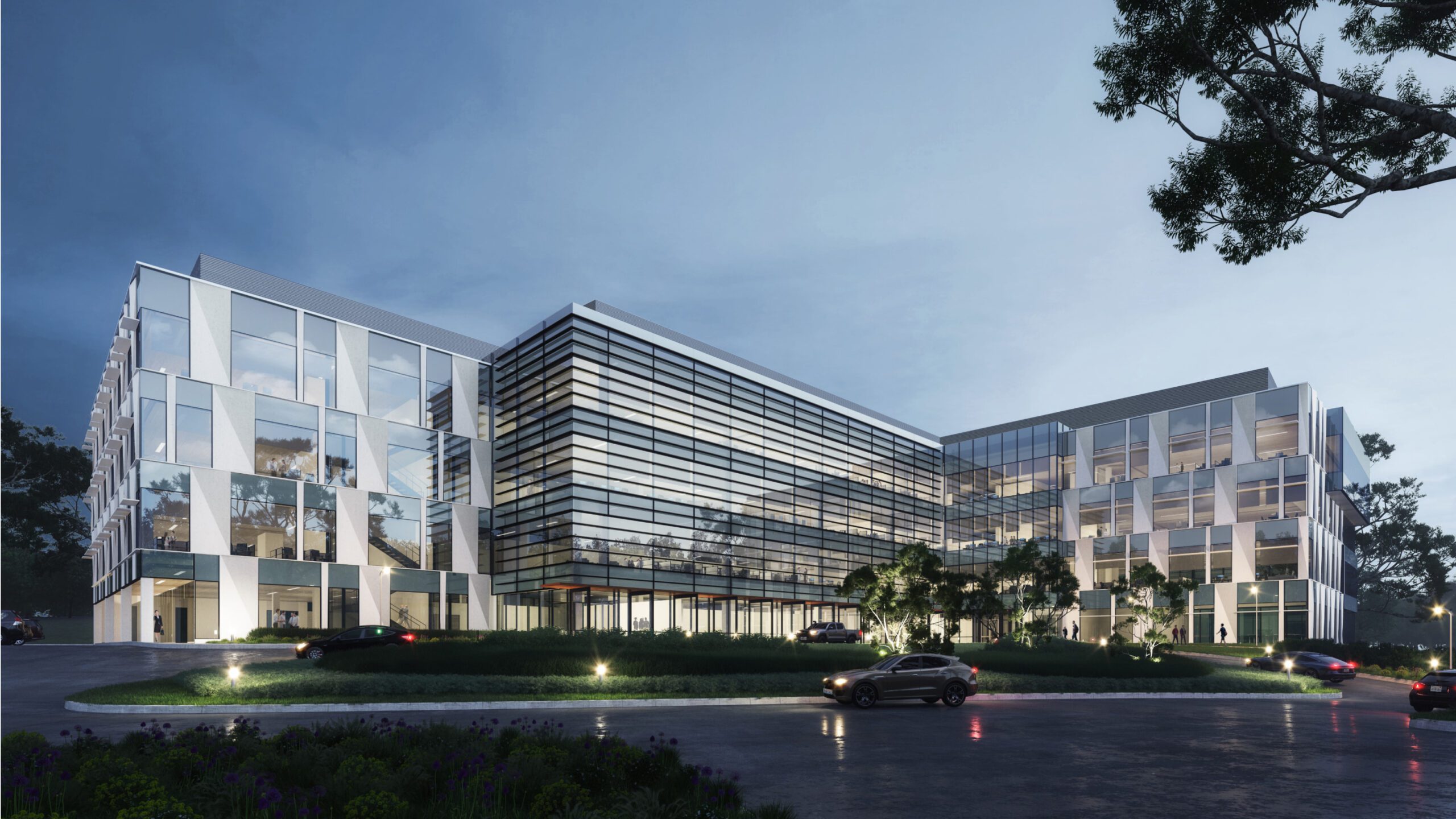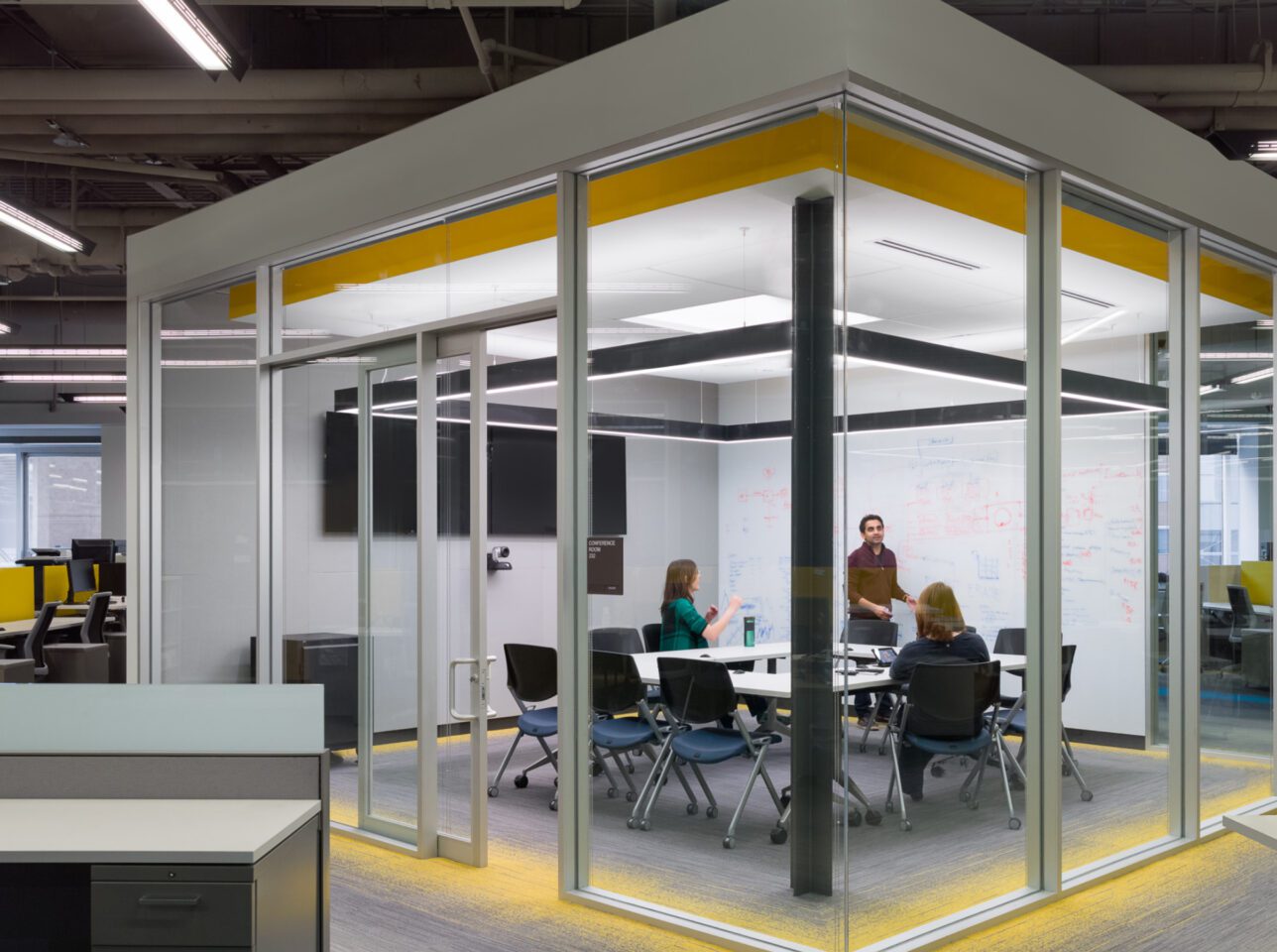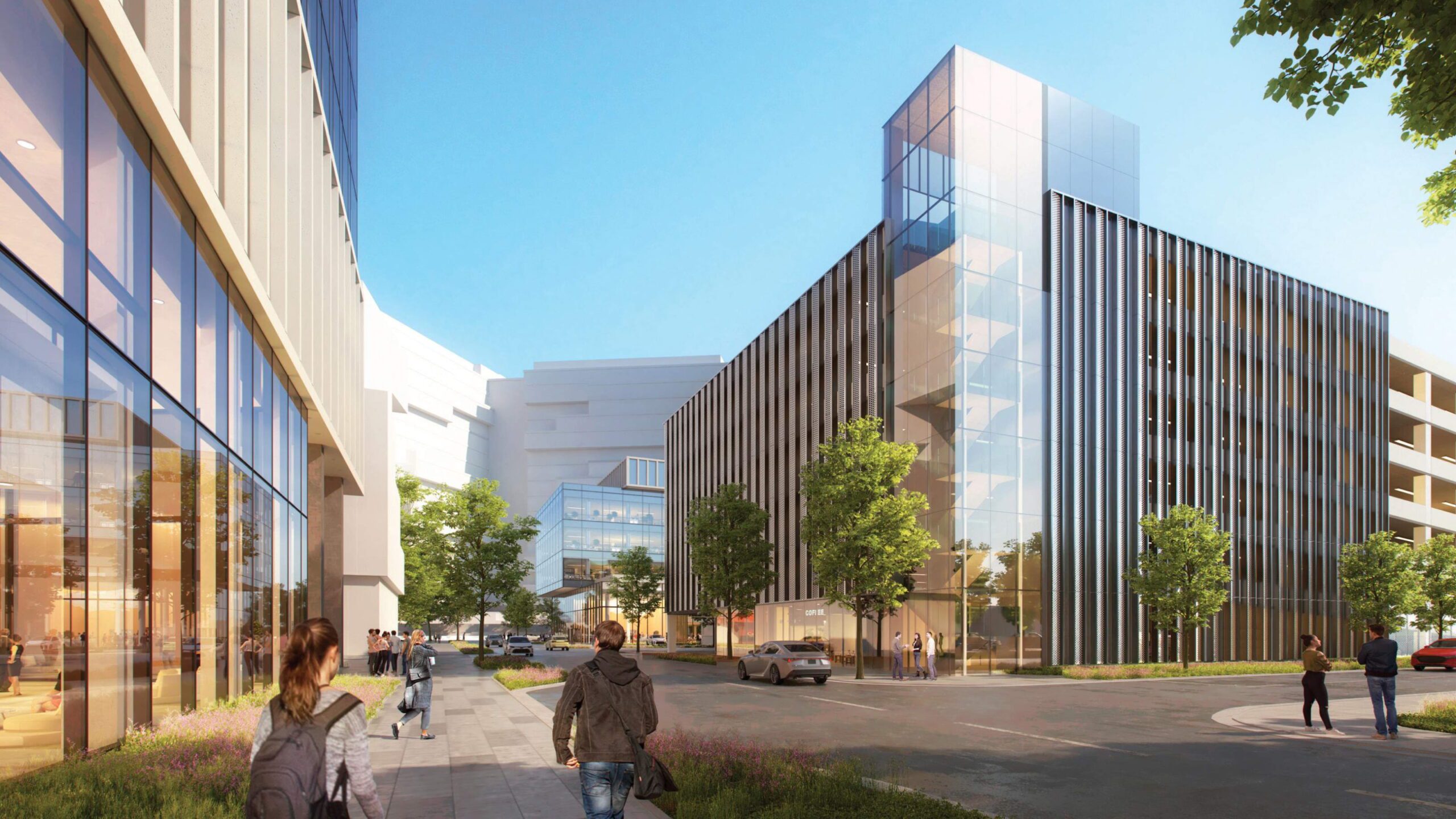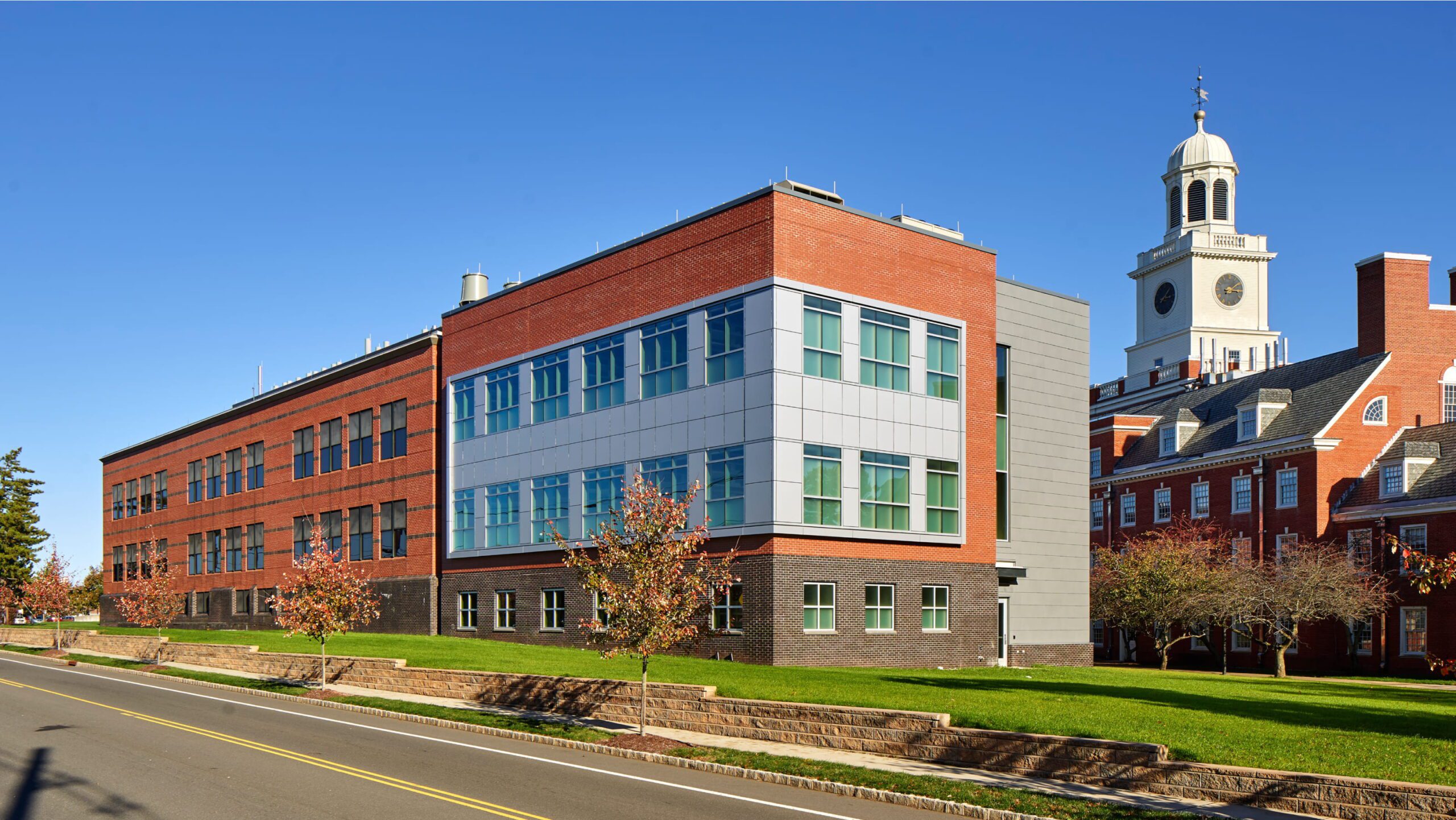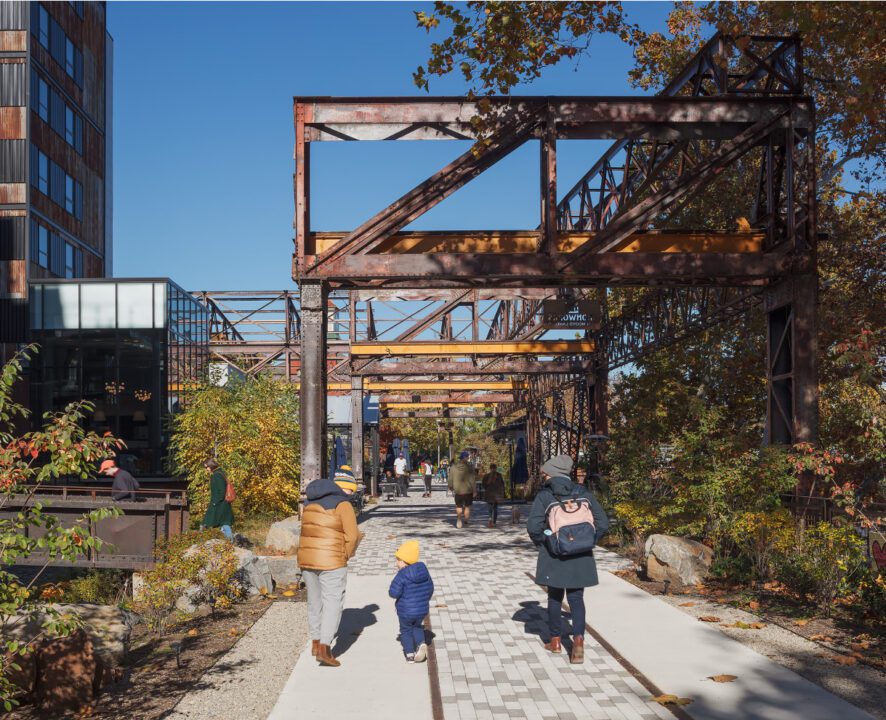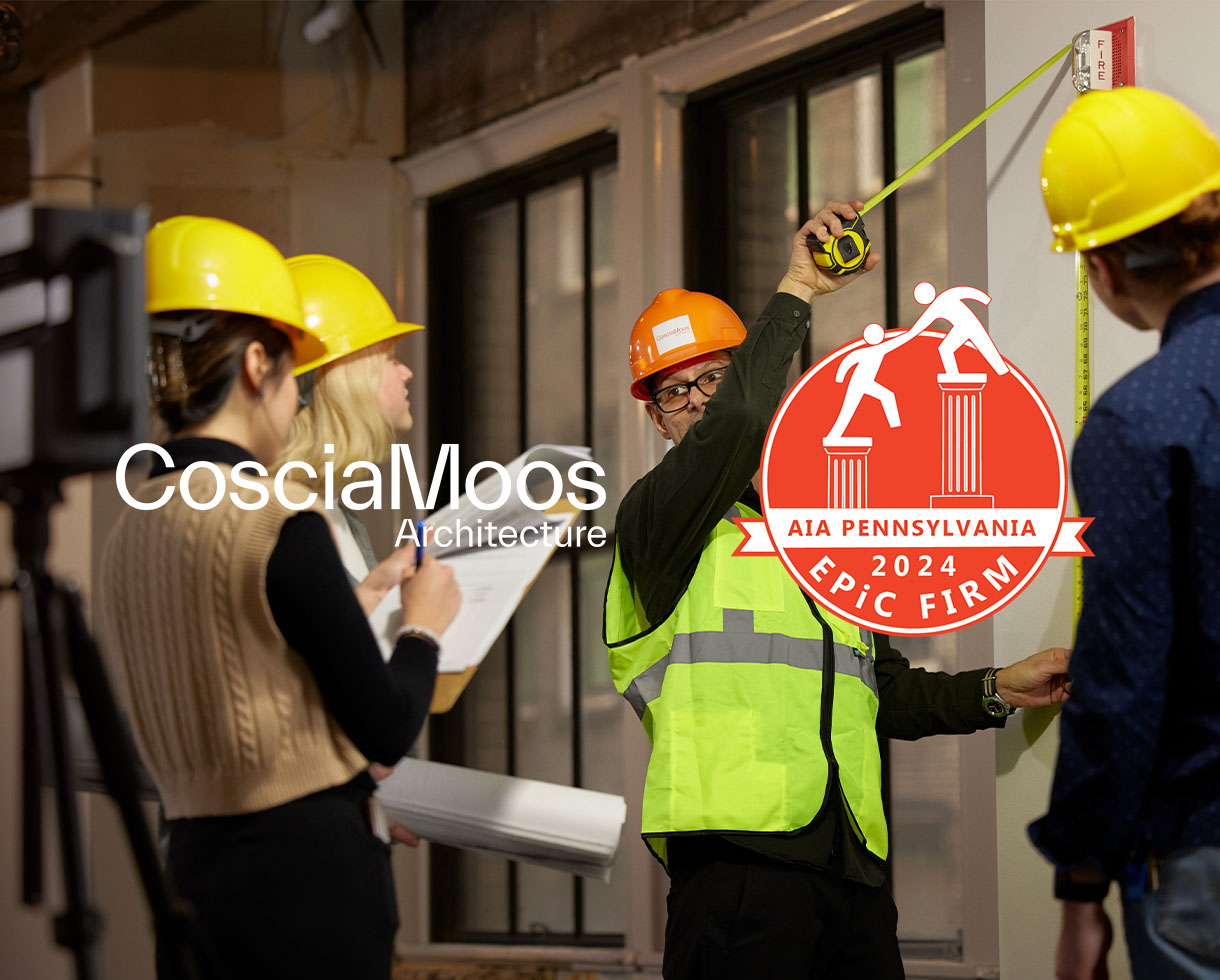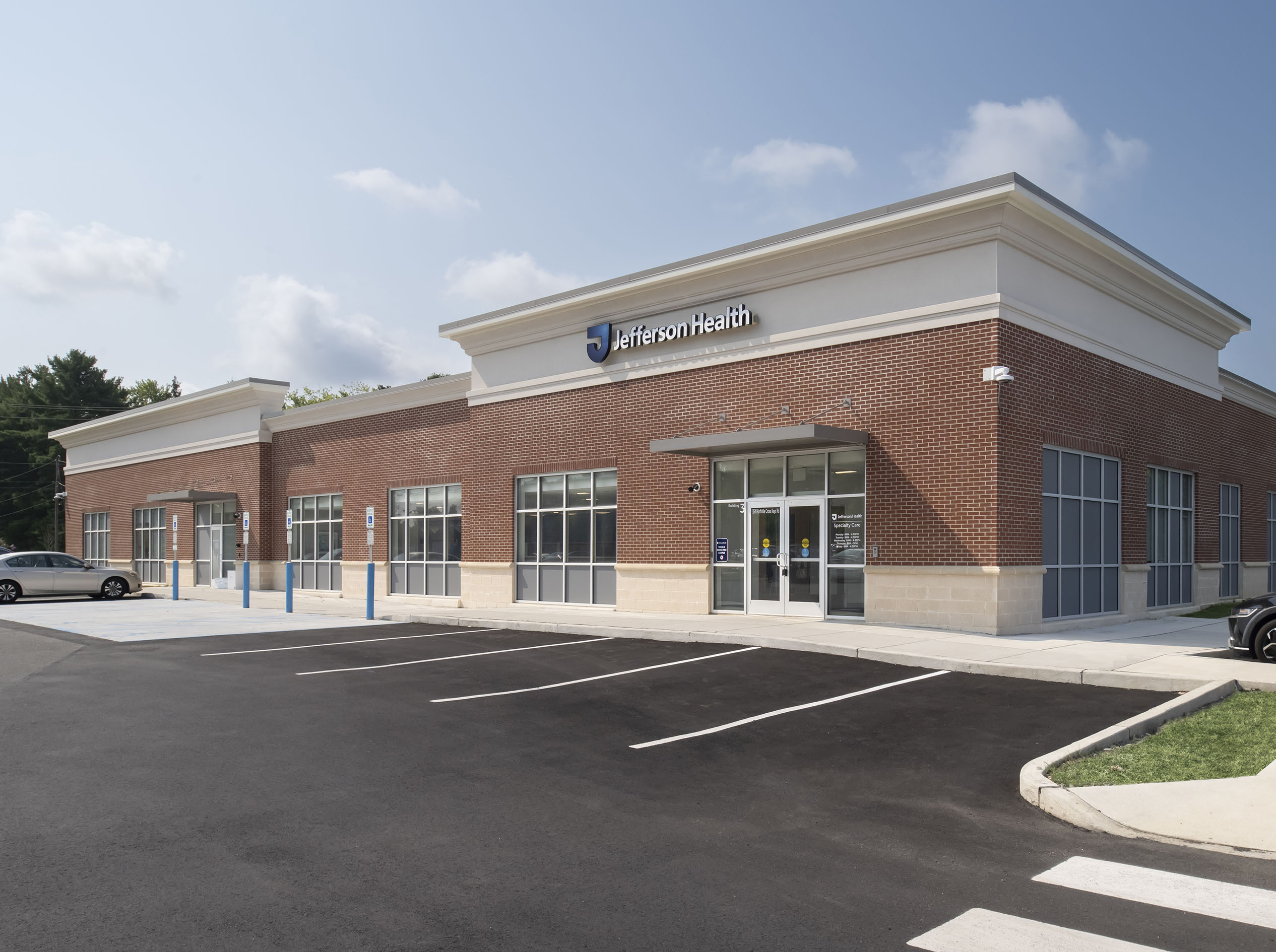Princeton University engaged CosciaMoos Architecture to renovate multiple laboratory spaces, each designed for and dedicated to a Principal Investigator team over the course of several years as part of an on-call agreement with the University.
Each renovation is designed to fit the unique needs of its users, maintaining necessary safety standards and accommodating state-of-the-art technology and equipment, specialized laboratory space, and work areas for students and faculty. Highlighted projects include:
Princeton Forrestal Flow Laboratory
Located on Princeton University’s Forrestal Campus, this project re-envisions the existing Wind Tunnel Lab to add new equipment and more efficiently utilize the space. To make room for two new wind tunnels, the largest being 20’ x 51’ x 15’, the existing tunnel and its ductwork was relocated in the space. This freed up the double height ceiling, allowing for the inclusion of a new AeroLab Wind Tunnel. The newly renovated Forrestal Flow Lab will assist in the work of Dr. Aimy Wissa, the director of Princeton’s Bio-inspired Adaptive Morphology Lab. Her research uses the wind tunnels to study of avian- and insect-inspired wings and robotic systems with multiple modes of locomotion.
When first taking on this project, we studied multiple options to configure all of the specialized equipment in the space. However, we determined that the existing space could not support the existing Super Tank, another high pressure wind tunnel. We evaluated additional locations to relocate the tank and its associated crane, and settled on room 150 of the Gas Dynamics Laboratory. We renovated room 150 and relocated the equipment as part of a separate project.
Wind Tunnel Lab Completed in 2023 / Super Tank Completed in 2024
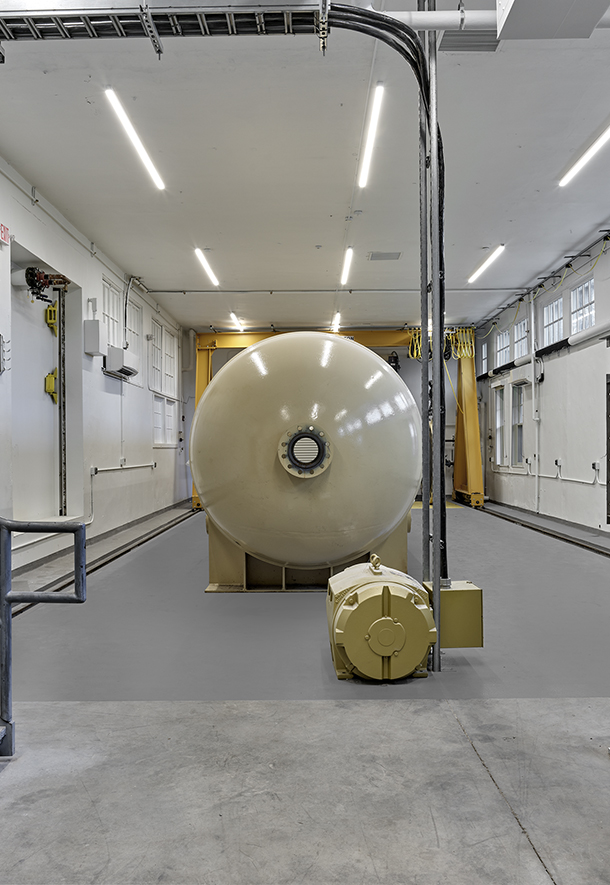
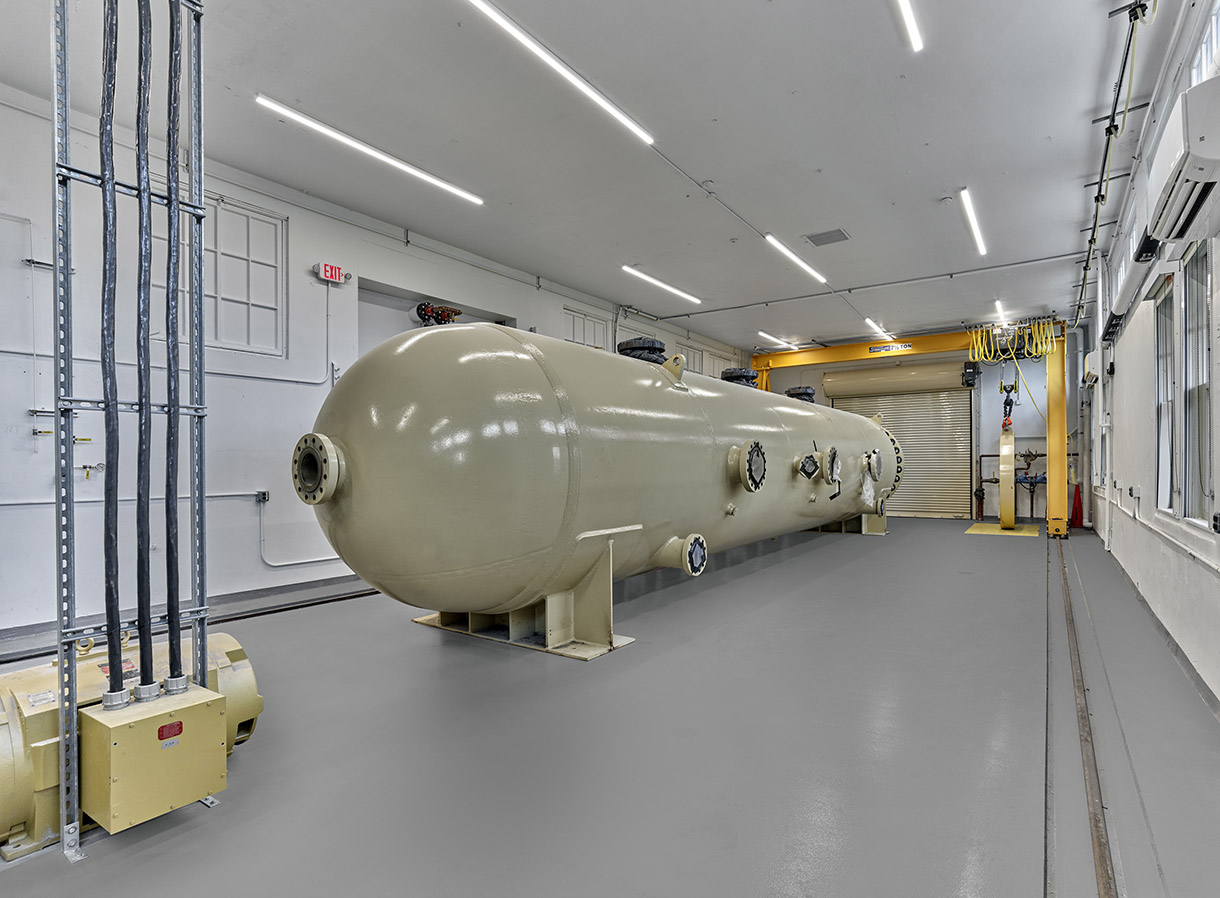
Super Tank
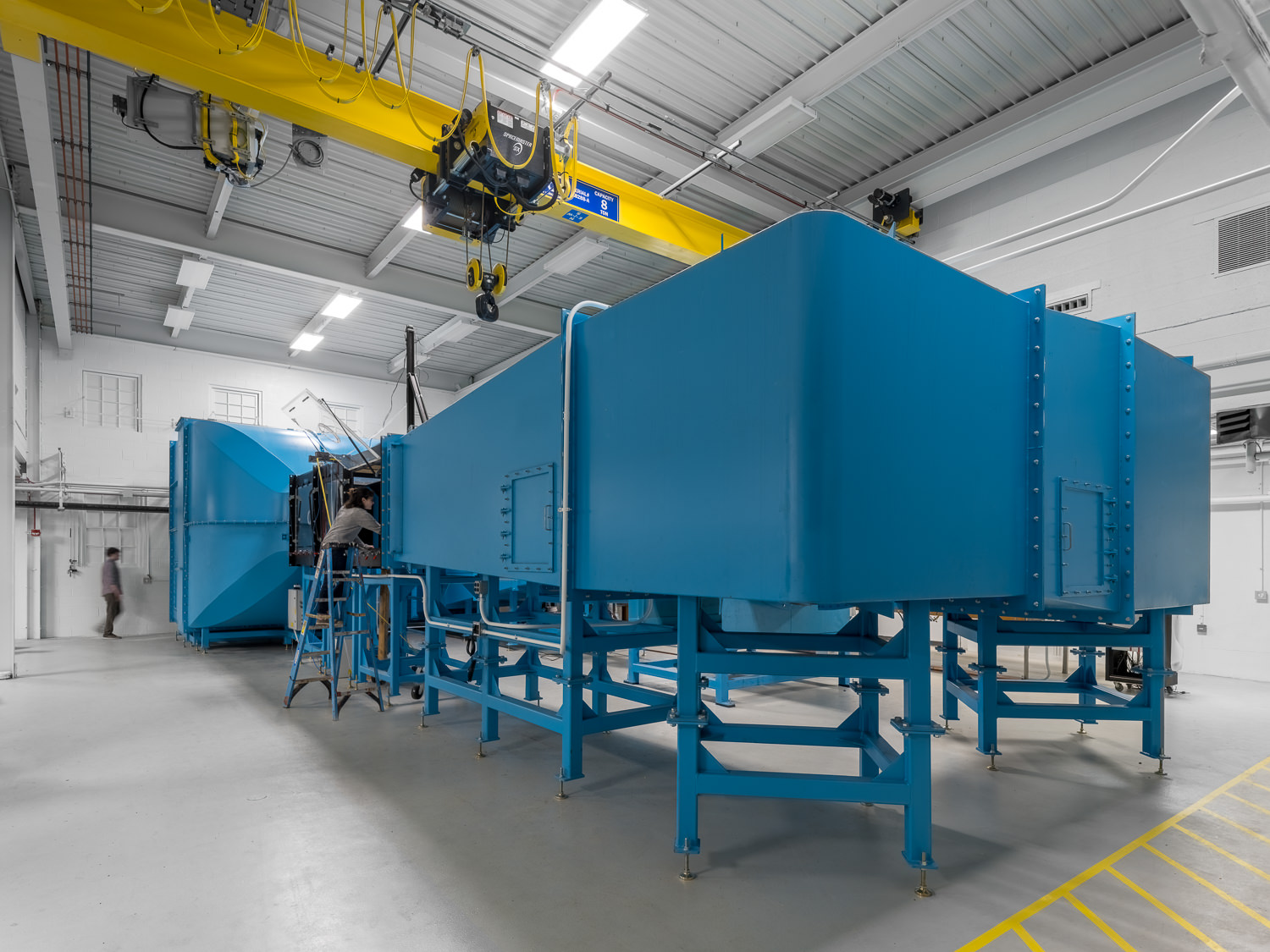
Aerolab Closed Circuit Wind Tunnel
Neuroscience Theory Projects
Renovation to 670 sf of space across rooms 273, 281A, and 232 in the Princeton Neurosciences Building (PNI). 273 is an enclosed lab, 281A and 232 are conversions from office space into a huddle room and kitchenette respectively.
To be Completed in 2024
Andlinger Kingsbury Lab
Programming study to determine the best location for a new lab for Professor Ryan Kingsbury, whose research aims to accelerate the development of electrochemical technologies for clean water and clean energy production. After completion of the study, design and construction commenced to renovate 713 sf across two rooms in the Andlinger Center, which will include a dry lab, wet lab, and ante room.
To be Completed in 2024
Bowen 114-117 Laboratory Renovation
Located in Bowen Hall on Princeton University’s main campus, Thompson Lab is a renovation of an existing laboratory space to support research by Professor Jeff Thompson. Professor Thompson’s research centers on atomic physics experiments involving laser cooling and trapping of atoms to develop quantum computers. The fundamental physics experiments required for this research are built on optical tables that necessitate low vibrational interference and a high degree of temperature and humidity stability. The planned space will hold two Optical Labs designed to minimize disturbances as much as possible. Each lab is accessed from a shared Ante Room, which acts as a buffer between the hallway and the lab spaces. To adhere to the tight temperature requirements, a new mechanical room houses equipment separate from the Optical Labs. This room location is adjacent to the main lab space, so it was critical for it to be vibrationally isolated from the Optical Labs. Additionally, the space uses flooring that dissipates static electricity, preventing any electric shocks that might disturb the experiments.
Completed in 2024
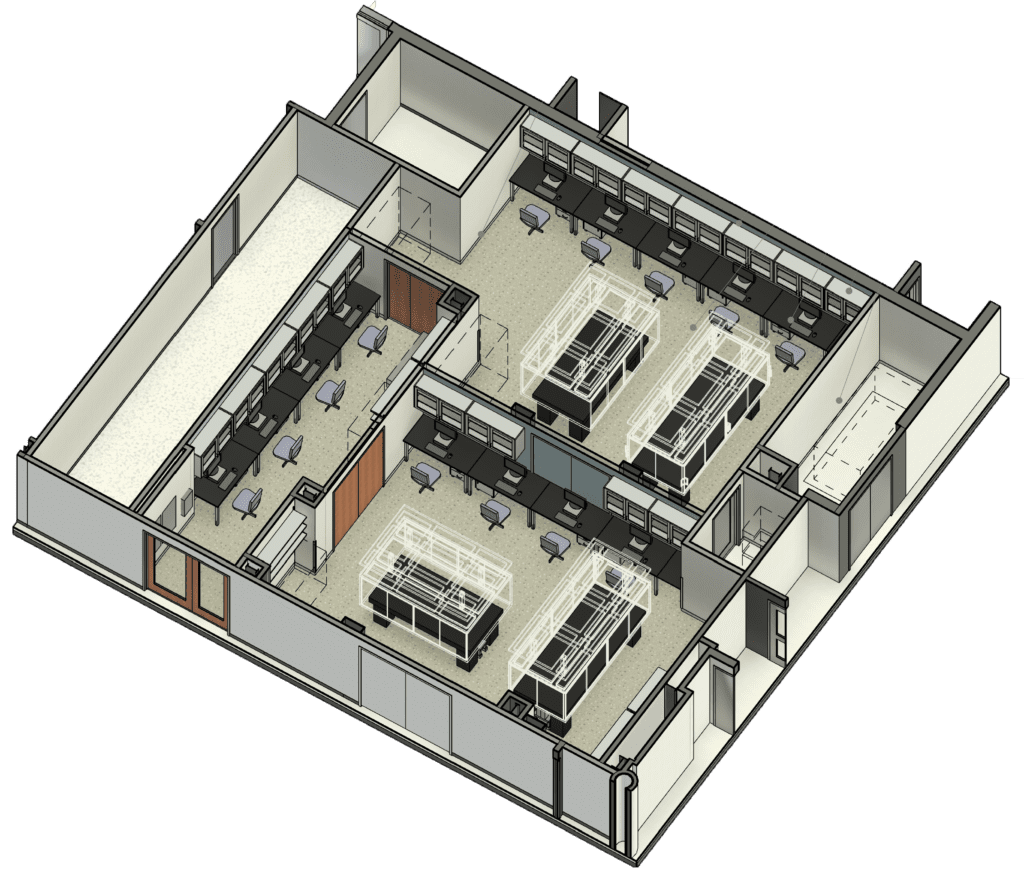
Guyot Laboratory B81-84
Renovation of Guyot Hall B81-84 to accommodate a Trace Metals Laboratory. The space includes a wet lab and a clean room.
Completed in 2023
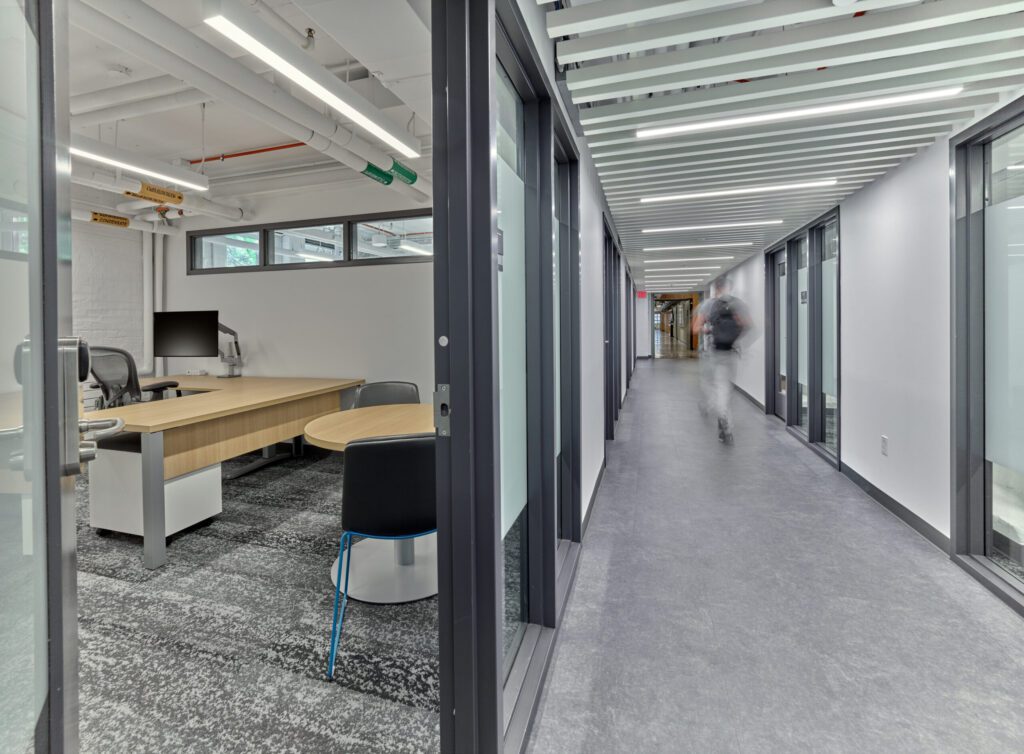
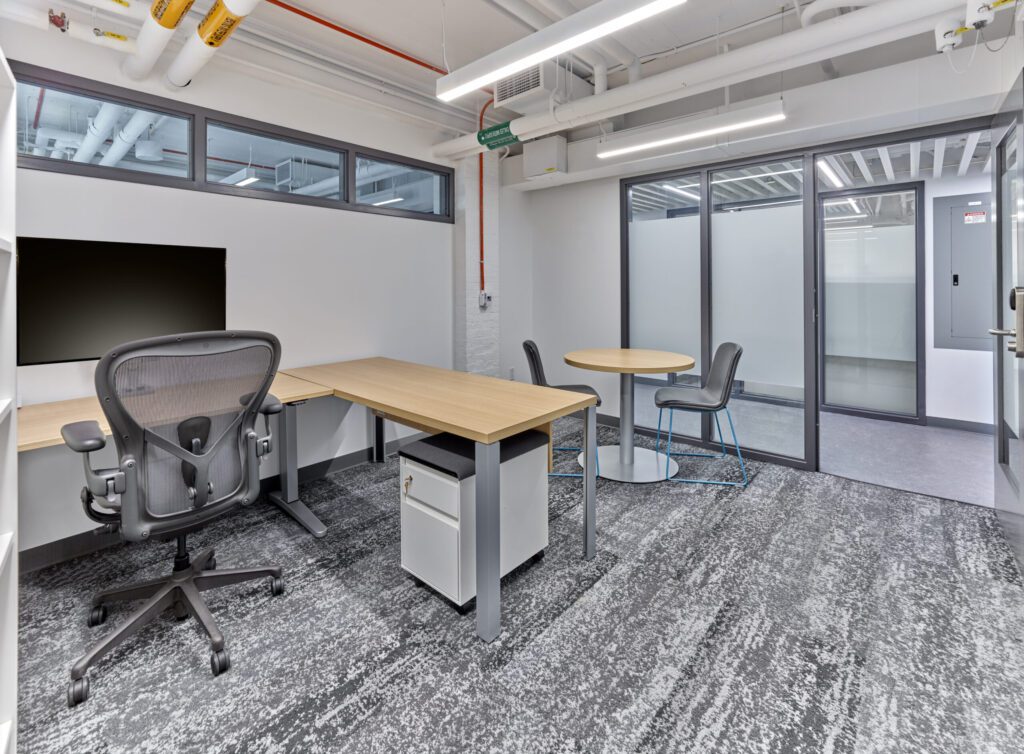
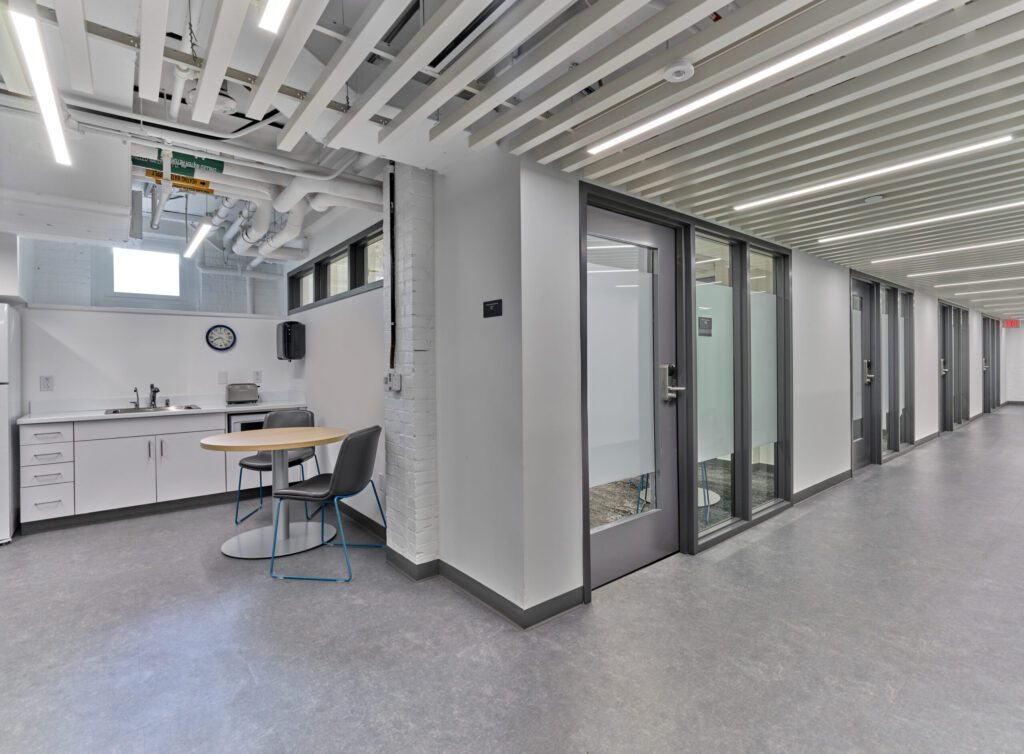
EQuad Laboratory C422 C428
Renovation to approximately 400 sf of existing laboratory space to support research including atomic physics experiments involving laser cooling and trapping of atoms.
To be completed in 2024
Icahn Laboratory 124-125
Renovation to room 124/125 for a new BSL2 lab supporting Fly Research.
Completed in 2021
EQuad Laboratory
Located within the Department of Mechanical and Aerospace Engineering, the wet laboratory renovations include the accommodations of a laser table, new laser curtains and two fluid tanks.
